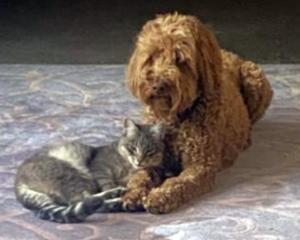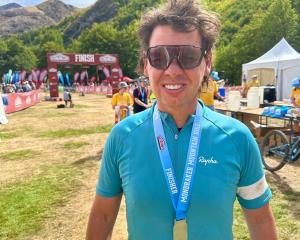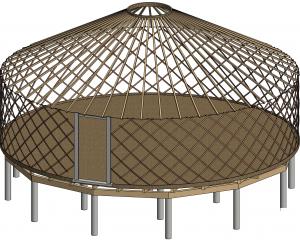Mrs Oosterhuis was recently back in New Zealand and told the Otago Daily Times about her charity work in her adopted home of Arusha, Tanzania, and how the generosity of Otago sponsors is making a difference there.
Originally from Dunedin, and with a family holiday home at Lake Hawea, Mrs Oosterhuis (43) has lived in the Tanzanian city of Arusha for 19 years and has spent much of that time helping charities, mostly voluntarily.
Over the past decade, she has joined forces with Mrs Hope, who set up the Arusha Orphans' Charitable Trust to support young people in the city.
After Mrs Hope and husband Derek visited Mrs Oosterhuis in Arusha about 12 years ago, the trust evolved out of Mrs Hope's book club.
It now has around 100 Otago sponsors - mostly from Wanaka - and gives an average of $10,000 a year to young people in Arusha.
The money is sent directly to Mrs Oosterhuis, who channels it where it is most needed, something she can easily assess living among the poverty and hardship.
The women say because there is ''no middle man'' involved in their projects, unlike other charities supporting African children, it is possible to ensure all the funding gets to the right places and to see tangible results.
''It's always hard, I think, giving money and thinking `Is it actually going where it's supposed to be going?''' Mrs Oosterhuis said.
She met her Dutch husband, Ekko, in Tanzania and the couple have four children, a successful agriculture business and a comfortable life there.
However, seeing the plight of young native women - she saw teenage girls, some pregnant, breaking up rocks into smaller stones for a living - was the catalyst for Mrs Oosterhuis' charity work.
She and a local woman known as Mama Tascha, who owns a school in Arusha for deprived females, established a home where the women were fed and taught to sew, in order to earn some money.
Mrs Oosterhuis no longer helps run the home, but still visits regularly and gives money to Mama Tascha from the annual Arusha Christmas Fair.
The large-scale craft fair has been organised by Mrs Oosterhuis for the past eight years and raises nearly $40,000 for up to 35 local charities annually.
Meanwhile, Mrs Hope's Wanaka trust has brought huge benefits to an Arushan orphanage and an associated school run by Kenyan woman Jane Olevolos.
Sponsorship from Otago people has funded food, clothing, toys and educational resources for hundreds of children, including, more recently, those at a special needs unit at a local primary school.
Through Mrs Oosterhuis, the trust also now supports a project known as The Plaster House, a home in Arusha that enables children from all over Tanzania to recover after they have had corrective orthopaedic surgery, plastic surgery or neurosurgery for a disability.
The Plaster House is run by Australian Sarah Rejman - a friend of Mrs Oosterhuis and a niece of Wanaka's Sir Tim Wallis.
Money from the trust has bought beds and a new bathroom for the young patients.
The trust also recently funded an emergency brain scan on a blind orphan boy, which detected a tumour and ''saved that little boy's life'', Mrs Oosterhuis said.
The impact the Wanaka trust had made in Arusha was ''amazing''.
''Aunty Pauline does a wonderful job ... there's so much to do in Africa. It's a lot of money; it really really helps.
''You can see the difference in the children we've been helping ... before I used to go, Jane [from orphanage and school] was always struggling.
But now she knows the income comes in each year she can plan and budget for the food and also the education of the children.''
Mrs Oosterhuis also wants sponsors and others to come to Arusha and work on the charity projects.
''Money's very important but actually if you've got a spare four weeks or five weeks come out - it's very helpful.''
Mrs Oosterhuis said she had always been motivated to help others.
''And when you live in Arusha it sort of hits you that you're very privileged and you've got everything you need in the world.''
The Oosterhuis family plans to stay in Arusha for another three years before moving to Nelson.
During her early December visit to Wanaka, she met sponsors from the trust to update them on what their donations had accomplished.
Among the sponsors was the Montessori Children's House Wanaka, which sent her off with a suitcase full of books, toys and games to take back to the Arushan orphans.











